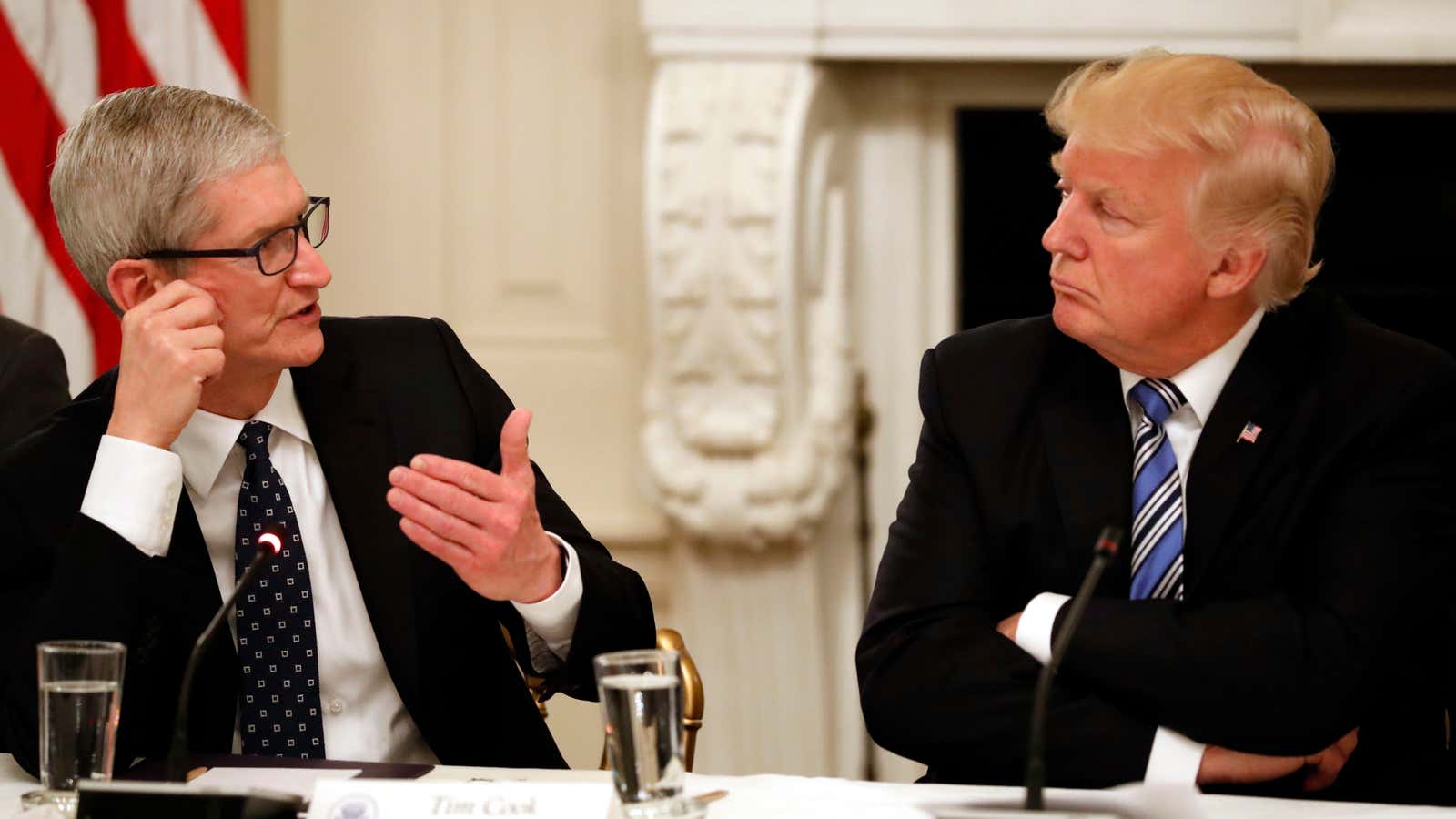The corporate tax cuts enacted by president Donald Trump and the Republican party are supposed to lure investment back to the US, leading to an increase in wages for working Americans.
But workers’ wages have grown half as slowly in the first five months of 2018, with the tax law in force, compared to the first five months of 2017. And average worker wages were actually higher before the tax law was enacted.
Why haven’t predictions of rising wages come true? An ambitious new paper released by economists Thomas Tørsløv, Ludvig Wier and Gabriel Zucman argues that the tax bill contains a fundamental misunderstanding about global capitalism.
At its heart, the law reasons that in a world of mobile capital, the country with the lowest corporate taxes will attract the most business investment, creating the most high-paying jobs. This logic undergirds much of what economists believe about the interaction between foreign investment and taxation, and is one of the sole points of agreement between Apple CEO Tim Cook and Trump. The bill therefore cuts the corporate tax rate to 20%, and largely exempts foreign profits from US tax.
The new paper turns this model on its head. Its key insight will be obvious to anyone who keeps an eye on the offshore financial system: When companies move money to tax havens, they don’t build factories or hire workers—they’re just re-arranging paper.
“Globalization, so far, has not made capital move to low-tax places,” the authors conclude. “What the data suggest is that, so far, profit shifting seems to have swamped real capital mobility.”
The authors used new data being released by many countries, including tax havens, that reveals the wages paid by local affiliates of foreign multinationals. By comparing these statistics with corporate profits reported by countries and by the multinationals themselves, they were able to provide evidence for their thesis.
Consider this chart, which shows the 2015 profits of local affiliates of US multinational companies as a percentage of the wages paid to their employees:
In tax havens, companies earn huge amounts of profit compared to the wages they pay. The authors note that in the next year, 2016, Alphabet, the Google parent company, reported $19.2 billion of revenue in Bermuda, a tiny island with a tax rate of zero percent.
Indeed, in 2014, US companies reported $50 billion of profits in the Cayman Islands, which reported total economic production of just $3 billion that year. What the new wage data helps establish that this phenomenon of huge profits without real economic activity is systemic, across the same companies in a wide variety of tax havens.
The researchers go further and examine US-specific data about corporate investment. They find that returns in tax havens increased as multinationals increasingly began to shift profits offshore during the 1980s, but that capital investment did not. While offshore subsidiaries invested slightly more than related on-shore companies, their profits surged unbelievably:
The authors’ explanation for this is fairly straightforward: The surge in profits has to do with moving intangible assets like brands and patents overseas, not investing in buildings or workers. And the missing profits mean that governments are collecting less than they should in tax. The prime losers, per the paper, are the European Union and developing countries, though the US also missed out on 14% of potential corporate tax revenue during 2015, a year in which 40% of global corporate profits, worth $600 billion, were shifted to tax havens.
It’s an article of faith among the tax bill’s advocates that falling global tax rates are the natural result of competitive nations seeking to attract investment. ”Our paper asks a simple question: Is this view of globalization and of the striking tax policy changes of the last years well-founded empirically?” the authors write. “Our simple answer is ‘no.'”
The calculus is fairly simple, as I wrote last year: “While a 15% rate would be much more competitive with the rest of the world, it still wouldn’t be as low as the rate in Ireland, 12.5%, where Apple currently funnels most of its foreign earnings.” The final bill created a top corporate tax rate in the US of 20%, giving multinational firms billions of reasons to keep moving their profits to tax havens outside US. Investors will cash in, but workers shouldn’t hold their breath.
